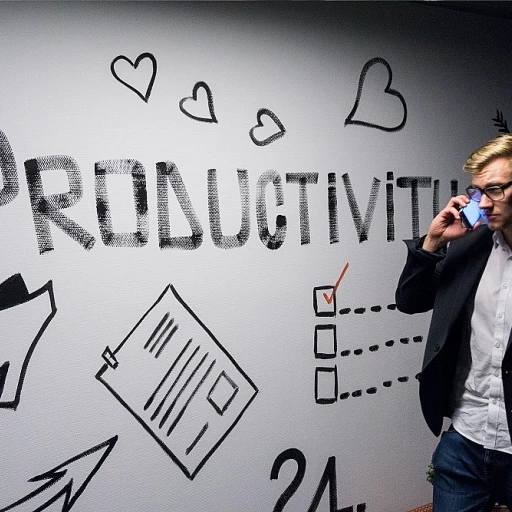
Understanding the Importance of Asking Questions
Why Asking Questions Matters
In the landscape of job interviews, the questions you ask can be just as important as the answers you provide. When you reach the conclusion of an interview, it's your opportunity to not only demonstrate your interest in the position but also to assess if the company is the right fit for you. Asking the right questions will help you gain insights into the company culture, the role, and the team you might be working with.
Engaging with the interviewer through thoughtful questions can also highlight your enthusiasm and preparedness. It shows that you have done your homework and are genuinely interested in the company and the position. This can leave a lasting impression on the hiring manager, potentially setting you apart from other candidates.
Moreover, asking questions can clarify any uncertainties you might have about the role or the company. It’s a chance to delve deeper into the expectations of the position, the dynamics of the team, and the company's approach to professional development. This information is crucial for making an informed decision about whether this job aligns with your career goals.
For more insights on what not to ask, you can explore what not to ask in HR job interviews. Understanding both the do's and don'ts of interview questions can significantly enhance your interview strategy.
Crafting Your Questions: What to Consider
Consideration for Curating Your Questions
When attending a job interview, crafting your questions is pivotal for gaining insights into the potential role and the company's dynamics. Thoughtful, tailored questions can leave a lasting impression on your interviewer. Let's explore some essential elements to consider when formulating your questions for a successful interview experience. Firstly, it's important to strike a balance between demonstrating genuine interest in the role and the company, and ensuring you obtain the necessary information that will help you ascertain if this is the right fit for your career aspirations and work style. Consider these aspects when curating your questions:- Relevance to the Role: Craft questions that show you understand the position and its responsibilities. This will help you clarify any uncertainties you might have about the role's expectations, and also exhibit your enthusiasm.
- Alignment with Career Goals: Use the interview as a chance to understand how the role aligns with your long-term career goals. Questions about professional development and potential career paths within the company can be insightful.
- Understanding the Company Culture: Gauge the working environment and the team dynamics by asking about the company's culture. Understanding the company's values and work ethos can help determine if you will enjoy and thrive in that setting.
- Learn about Your Potential Team and Manager: Asking about team structure or the supervisor's management style provides a clearer picture of who you’ll be working with. It can also signal your readiness to integrate into the team.
Top Questions to Gauge Company Culture
Uncovering the Culture through Insightful Conversations
Asking thoughtful questions about company culture during your job interview will help you better understand if you are a good fit for the team and working environment. Delving into this aspect can offer valuable insight into how you might fit into the company's existing framework. Here are some killer questions you may consider asking your interviewer:- Can you describe the company's work environment and culture? This question will help you gauge the overall atmosphere and daily dynamics of the workplace.
- How does the team collaborate and communicate on projects? Understanding how team members interact will provide a window into how decisions are made and how work is carried out.
- What do you enjoy most about working for this company? The interviewer’s answer to this question can reveal what they value about their role and the organization. It also sets a tone for potential employee satisfaction.
- How does the company support professional development and growth? A clear indication of how the company fosters career advancement will help you determine if there is long-term potential for your professional growth within the role.
- Can you tell me about recent successful initiatives and what made them successful? This question allows you to learn about the company’s achievements and values, including how success is defined and celebrated.
Questions to Understand Role Expectations
Clarifying Job Responsibilities
When you're in a job interview, understanding the specific responsibilities of the role is crucial. Asking the right questions will help you determine if the position aligns with your career goals and if you're a good fit for the company. Consider asking the interviewer to describe a typical day in the role. This question will provide insight into the daily tasks and challenges you might face.
Understanding Team Dynamics
Another important aspect to explore is the team you'll be working with. Inquire about the team structure and how your role fits within it. Questions like "Can you tell me more about the team I'll be working with?" or "How does this position collaborate with other departments?" can help you gauge the company culture and the dynamics you'll be part of. Understanding the team environment is essential for assessing whether you'll thrive in the role.
Expectations and Success Metrics
To ensure you're on the same page with the hiring manager, ask about the expectations for the role and how success is measured. Questions such as "What are the key performance indicators for this position?" or "How does the company evaluate success for this role?" will provide clarity on what the company values and how you can contribute effectively. This information is vital for aligning your efforts with the company's goals and demonstrating your potential as a valuable team member.
By asking these questions, you not only show your interest in the position but also gather essential information to make an informed decision about your potential future with the company. Remember, a job interview is a two-way street, and these inquiries will help you determine if the role and company are the right fit for your career aspirations.
Inquiring About Growth and Development Opportunities
Exploring Growth and Development Opportunities
Asking about growth and development opportunities during your job interview is essential for understanding the potential career path within the company. This not only demonstrates your ambition but also shows the interviewer that you are interested in a long-term commitment with the organization. Consider inquiring about the following aspects when evaluating growth opportunities:- Professional Development Programs: Ask if the company offers any programs or workshops that focus on enhancing employees' skills. This question will help you assess if there are avenues for continuous learning and personal growth.
- Career Advancement: Inquire about typical career progression within the role or the company. For instance, "What have been some typical career paths for individuals in this position?" can give you a good indication of your potential trajectory.
- Internal Promotion Practices: Clarify the company's stance on promoting from within. Understanding how the company values your potential growth over time can give you insights into their culture and dedication to employee development.
- Collaboration Opportunities: Ask about the chance to work on cross-functional projects or with different teams. This can be an avenue for expanding your skills and knowledge in your desired career path.
- Feedback and Performance Reviews: Lastly, ask how feedback is provided and how performance reviews are conducted. Knowing how they support their team members through constructive feedback can be pivotal in your own professional development.
Evaluating the Interview Process and Next Steps
Clarifying the Path Forward
Now that you have navigated through various stages of your job interview questions, understanding the next steps is crucial. It's not just about satisfying curiosity; asking questions about the interview process, feedback timelines, and onboarding procedures can showcase your keen interest in the position and your proactive approach.- Next Steps in the Interview Process: Always inquire about the subsequent phases of the selection process. This includes asking how many more rounds you might expect and the expected timeline for a decision. This question will help you prepare accordingly and gear up for the forthcoming stages.
- Feedback Timeline: An essential aspect of professional development is constructive feedback. Don’t hesitate to ask when and how you might receive feedback on your interview performance. Understanding this can provide insights into the company culture and their commitment to candidate communication.
- Onboarding and Integration: If you are considering a long-term role with the company, asking about the onboarding process is vital. As the interviewer outlines their integration approach, you can gauge the support system provided to new employees, which speaks volumes about the company culture.
- Role Clarification and Expectations: Even though you have grasped a broad understanding of the role, pressing for details on initial projects or key responsibilities will help solidify your place as a good fit. This also demonstrates your readiness to step into action.













